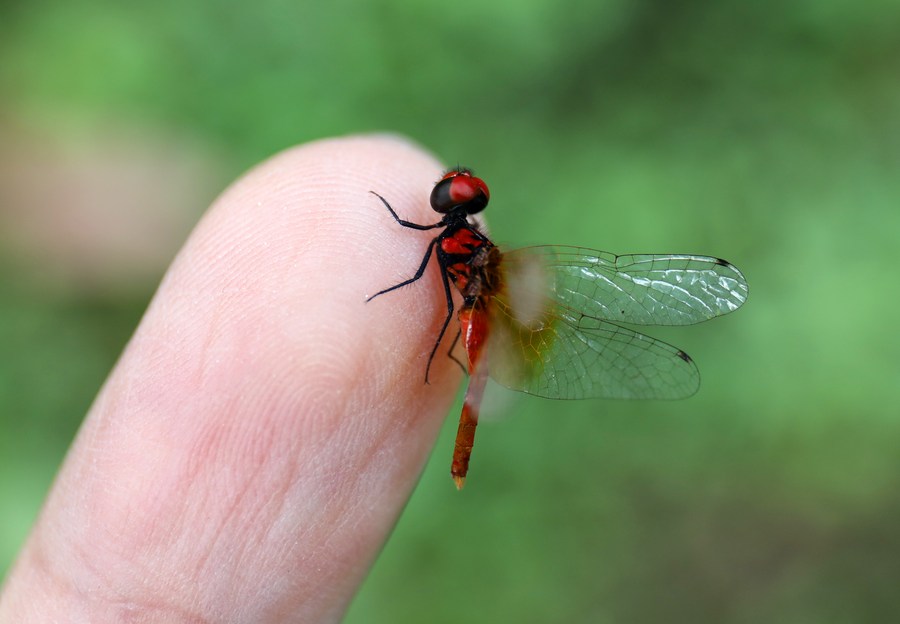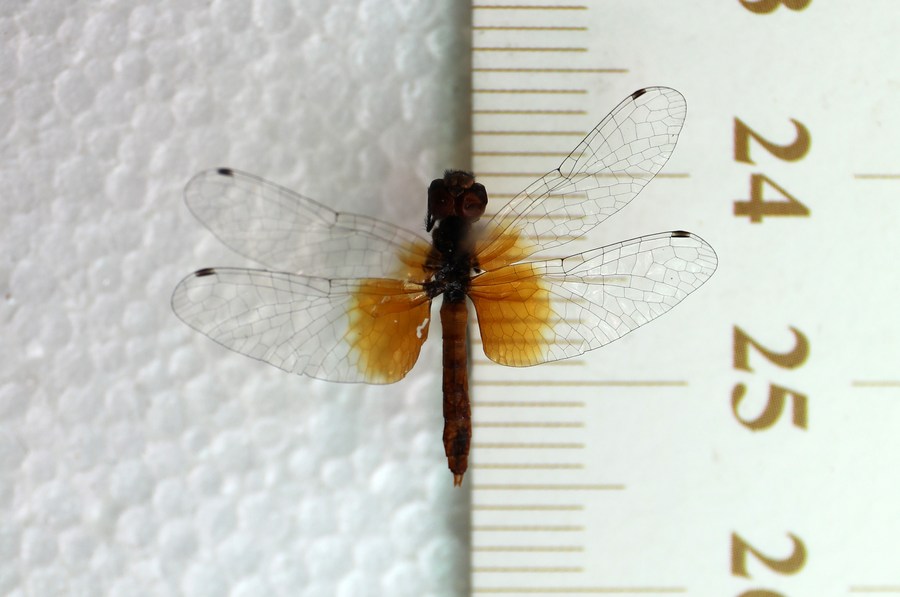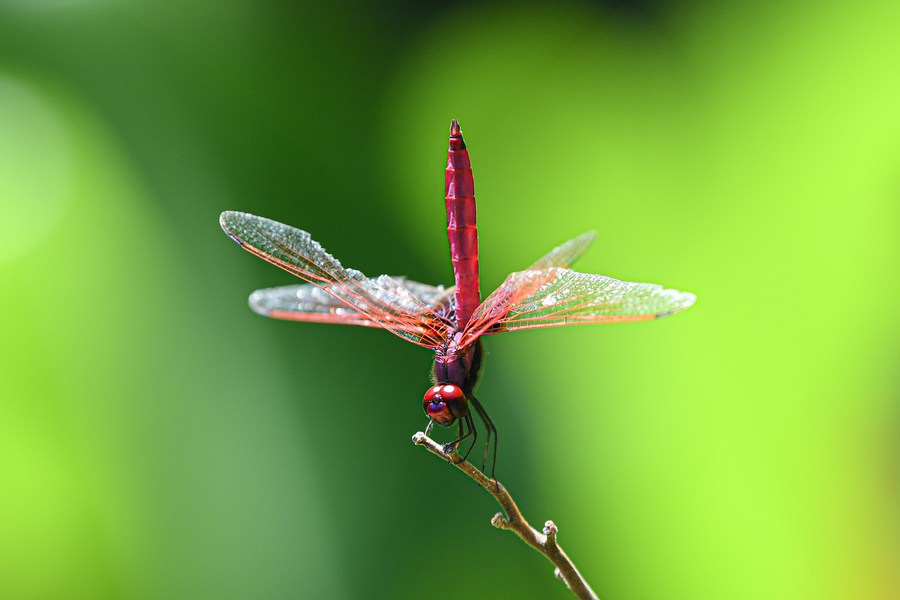
Photo taken on Oct. 2, 2020 shows a dragonfly found in Sichuan, southwest China. (Insect Museum of West China/Handout via Xinhua)
By Xinhua writers Li Huaiyan and Zhao Cailin
KUNMING, Nov. 22 (Xinhua) -- Growing up in northeast China and traveling through the mountains of central China before arriving in the country's southern region where dragonflies flourish, Zhang Haomiao's footprints of life ingeniously coincides with the migration trajectory of Anax parthenope, a common dragonfly species in China.
Zhang, an entomologist -- specializing in dragonflies -- with the Kunming Institute of Zoology, Chinese Academy of Sciences, embarked on his journey chasing this fascinating creature at the age of five.
"They are such a beauty," Zhang said. "Since my teenage years, I've been obsessed with the species. I would watch them fly by the nearby rivers almost every day."
He began to collect specimens when he was a high school student, and taught himself how to identify dragonfly species in college. "I used to keep a lot of dragonfly larvae in a fish tank in my dorm and invited friends to observe their emergence, as they transformed from aquatic larva to an imago before spreading wings to fly over the desks and balcony," Zhang said.
From a small egg to a spectacular species with bright wings, dragonflies endure a long and arduous journey underwater before attaining full maturity. Dragonflies are older than dinosaurs, Zhang said, adding that the earliest dragonfly fossil found dates back to the Paleozoic Carboniferous period at least 300 million years ago.
Zhang hosted his first dragonfly exhibition when he was still in college. "Majoring in chemical engineering, which seems to be unrelated to dragonflies, I explored a set of color preservation techniques to develop high-quality dragonfly specimens."

Photo taken on Oct. 16, 2020 shows a sample of dragonfly found in Sichuan, southwest China. (Insect Museum of West China/Handout via Xinhua)
For a scientist who spends more than seven months a year on field surveys, tackling risks is a regular affair. During one of his research activities in 2012 in Cangshan Mountain, southwest China's Yunnan Province, located at an altitude of more than 3,000 meters, Zhang lost consciousness due to fatigue and lack of oxygen.
"I suddenly experienced numbness in my hands and feet, followed by convulsions and breathing difficulties," Zhang said, recalling his ordeal. "Fortunately, my companion Li Bin and I were working at the same spot. He carried me down, and saved my life."
Despite sleeping just about six hours a day and exploring through the woods and mountain roads more than 10 hours every day, Zhang said he never feels tired.
"Dragonflies are the elves of nature. It's always a great pleasure meeting them," he said. "They can live underwater for 10 months or even years. The flying form that we usually see is the last stage of their life."
"After catching dragonflies during the day, we carefully store them in plastic boxes for air drying, and make specimens and record data at night," Zhang said.
There are more than 6,000 species of dragonflies in the world, of which around 1,000 are found in China, and nearly half of them have been spotted and recorded in Yunnan through the fieldwork conducted by Zhang and his colleagues.
"The insect with gorgeous colors and a beautiful body is sensitive to the environment," said Zhang, adding that the rich biodiversity of dragonflies in China reflects the fruitful results following the country's ramped-up efforts in environmental protection.

Photo taken on Sept. 2, 2020 shows a dragonfly in a tropical rainforest in south China's Hainan Province. (Xinhua/Pu Xiaoxu)
Thanks to over two decades of dedicated efforts and persistence, Zhang has found one new genus and named 36 new species of dragonflies, with one of them named after him.
All the findings were published in Dragonflies and Damselflies of China -- the latest and most comprehensive list of Chinese dragonflies so far.
To raise awareness of the species among young people, Zhang has authored "A Dragonfly Flight Diary." A fairy tale of sorts, the book tells the story of two young dragonflies flying through various "Dragonfly Kingdoms," and their encounters with nature and people on the way. Zhang has vividly conveyed professional knowledge of dragonflies with an intelligible approach for children.
In July this year, authorities in south China's Guangdong Province recommended primary and secondary students to read the book and a publisher has decided to adapt it into an animated film.
Despite his great achievements, Zhang has never stopped his pursuit of dragonfly research and has left his footprints in hundreds of nature reserves in Asia, Europe and Africa.
Zhang and his colleagues have also formed a research team of nearly 30 people to study the species around the world.
"We should never forget why we started, and this is the idea I always stick to in my rendezvous with dragonflies," he said. ■




